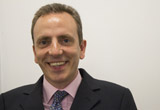 Putting the horse before the cart always seems like a sensible idea. And so it is with funding initiatives—it seems sensible to invest in starting up sustainable projects that will have long term positive outcomes. This is largely the received wisdom in investing in healthcare professionals’ education—invest in the undergraduate education of healthcare professionals in poorer countries and in a few years time you will have a bigger, better, and more productive workforce. Although sound in theory this doesn’t always work in practice. Trainee health professionals drop out or emigrate to richer countries or the funding is invested in the production of professionals who follow a Western model and that does not always meet the needs of the local population. Production of tertiary care specialists in countries that need primary care professionals is not likely to be a helpful outcome. Healthcare professionals’ education is also by its nature a long term process—it takes ten years to produce a family doctor from scratch—by which time people have moved on, the agenda has moved on and funders have often moved on also. It seems like heresy to even ask the question, but is there something that we can do that would be short term, that would have immediate positive outcomes, and that would have high take up amongst healthcare professionals?
Putting the horse before the cart always seems like a sensible idea. And so it is with funding initiatives—it seems sensible to invest in starting up sustainable projects that will have long term positive outcomes. This is largely the received wisdom in investing in healthcare professionals’ education—invest in the undergraduate education of healthcare professionals in poorer countries and in a few years time you will have a bigger, better, and more productive workforce. Although sound in theory this doesn’t always work in practice. Trainee health professionals drop out or emigrate to richer countries or the funding is invested in the production of professionals who follow a Western model and that does not always meet the needs of the local population. Production of tertiary care specialists in countries that need primary care professionals is not likely to be a helpful outcome. Healthcare professionals’ education is also by its nature a long term process—it takes ten years to produce a family doctor from scratch—by which time people have moved on, the agenda has moved on and funders have often moved on also. It seems like heresy to even ask the question, but is there something that we can do that would be short term, that would have immediate positive outcomes, and that would have high take up amongst healthcare professionals?
George Miller famously said in the context of medical education that, “assessment drives learning,” and Richard Hays in a different take on the same subject said, “if assessment drives learning, then let’s ensure that it drives learning in the right direction.” Both quotes emphasise the importance of assessment in medical education. Medical students and doctors in training are driven by the need to pass exams. By and large they will only study what will come up in exams. So if we can change the agenda of the exam then we can change the agenda of healthcare professionals’ education—in a far more fundamental and effective way then we can by adding another new item to an already bloated curriculum. How can we change exams? Its easier than you might think. Medical education bodies often struggle to get material (test items) for their exams. If you supply them with test items, then they will take them up and use them in their exams. Students will then study towards the test. If you supply lots of test items in communication skills, then that is what students will study. If you supply test items in shared decision making, then that is what students will study. The same goes for clinical subjects.
It’s putting the cart before the horse, but it may be an effective strategy and its surprising that it hasn’t been tried more often.
Kieran Walsh is clinical director of BMJ Learning—the education service of the BMJ Group. He is responsible for the editorial direction of BMJ Online Learning, BMJ Masterclasses, and BMJ onExamination. He has written two books—the first on cost and value in medical education and the second a dictionary of medical education quotations. He has worked in the past as a hospital doctor – specialising in care of the elderly medicine and neurology.
